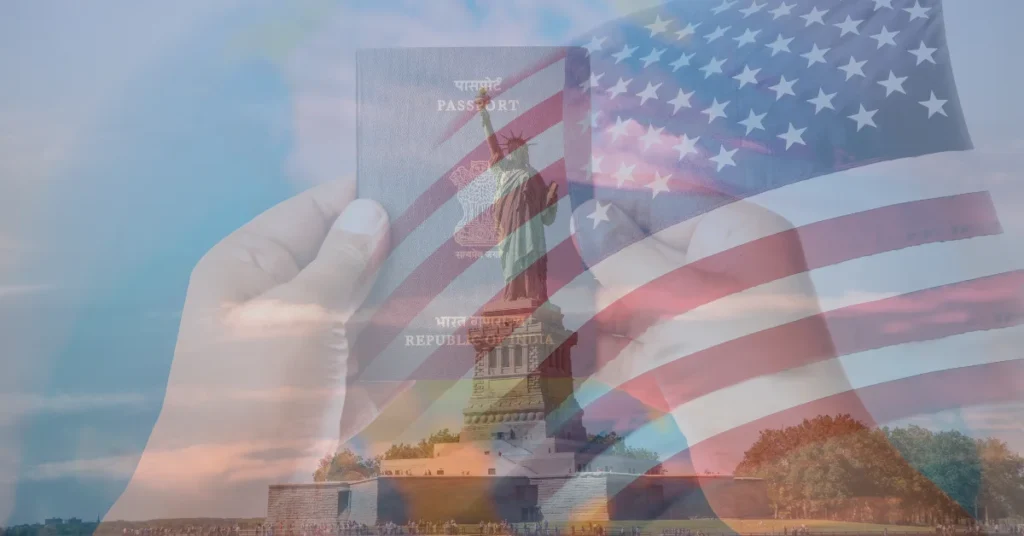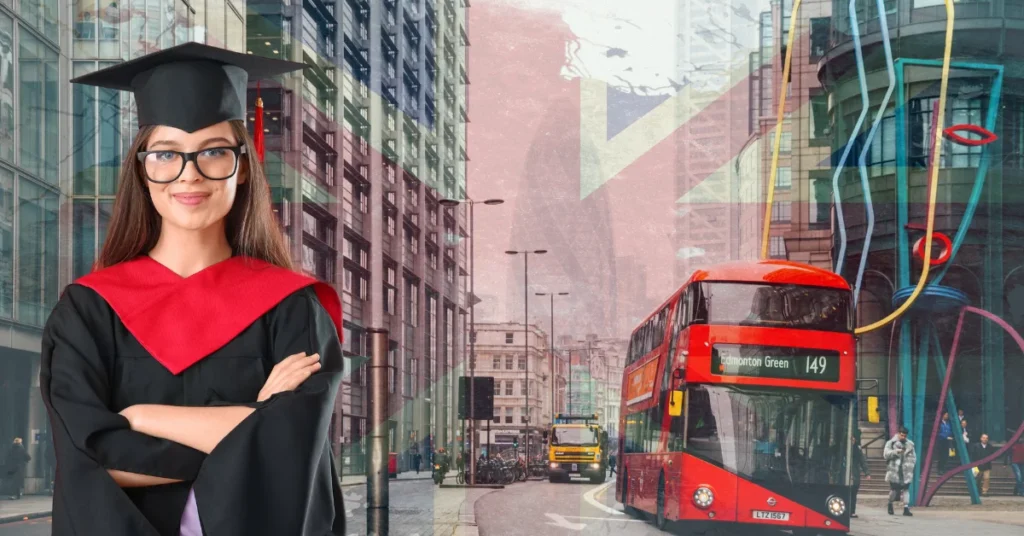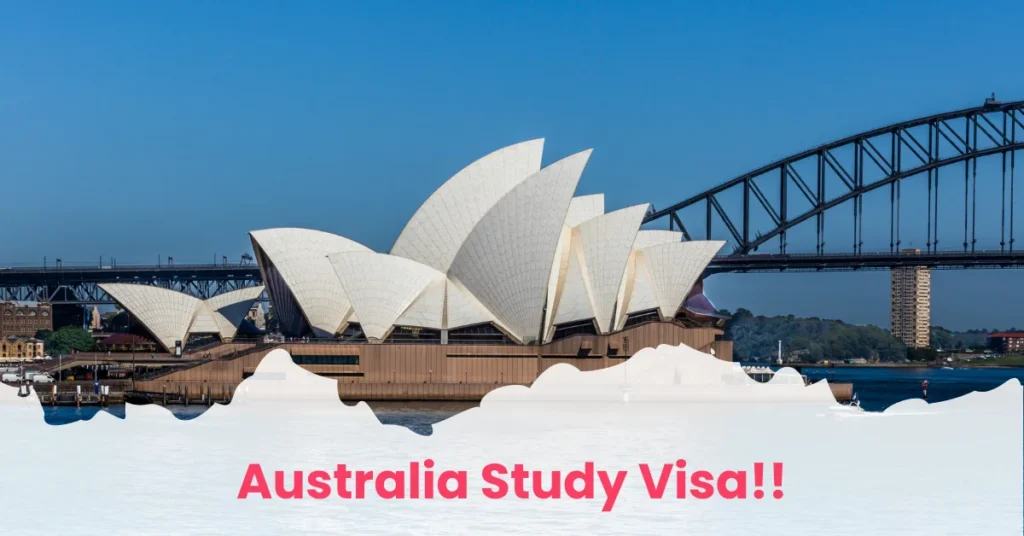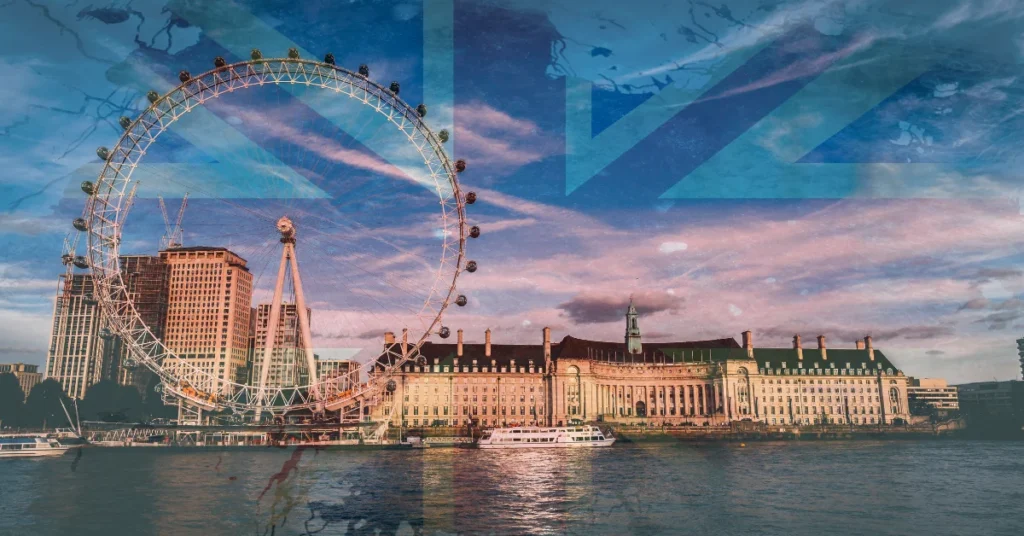Imagine yourself sitting in front of a US visa officer, your heart beating fast inside your chest.
You also know that your future depends on how well you answer the next few questions. This is your F1 visa interview, and the outcome is significant.
A lot of foreign students feel anxious about their F1 visa interviews, knowing that their responses will determine whether or not they are granted a visa to study in the US.
The interview may make you anxious, but it doesn’t need to. By preparing for the most common F1 visa interview questions and practicing your answers, you can increase your chances of success.
This blog post is a solution to your problem. In this blog, you will find a comprehensive list of the most common F1 visa interview questions, along with tips on answering them confidently.
Read this blog post and learn how to ace your F1 visa interview!
What is an F1 visa interview?
An F1 visa interview is an interview conducted by the U.S. government to determine whether a student is eligible to study in the United States on an F1 student visa. This visa allows you to enter into the U.S. and begin your studies at an accredited academic institution.
During the interview, a U.S. visa officer will ask you questions about your academic background, study plans, and financial support.
The office will also assess your ties to your home country and your intentions to return after completing your studies in the U.S.
This interview is a crucial and final step in your visa application process. If you are approved for a visa, you will be issued a visa stamp on your passport and you will be able to travel to the U.S. to begin your studies.
If studying in the U.S. is your goal, then preparing for F1 visa interview questions and answers is your chance to secure your spot at your dream college or university.
Why is it important to be prepared for your F-1 visa interview?
It is essential to be prepared for your F-1 visa interview for the following reasons:
- Approval: Being prepared can increase your chances of getting your visa approved so that you can begin your course in the United States.
- Confidence: Preparation helps boost your confidence during the interview, making it easier to answer questions effectively.
- Compliance: Being well-prepared will enable you to confidently provide precise and honest details regarding your academic intentions and financial status, ensuring that you meet the visa requirements.
- Reduce stress: Preparation can reduce the stress and anxiety associated with the interview, making it a smoother experience for you.
- Time and money: If your interview goes well, you won’t have to go through the process of reapplying, which saves you both time and money.
- Smooth process: being prepared for F-1 visa interview questions ensures a more efficient and straightforward application process.
- The interview is a chance to clarify any questions the consular officer may have about your application. For example, the officer may ask you to explain your financial support or to discuss your study plans in more detail. By being prepared, you can provide the officer with the information they need to make a decision.
Types of F-1 visa interview questions?
When you sit for your F-1 visa interview, the visa officer can ask you different types of questions about your personal information, academic background, etc.
These questions can be categorized into the following types:
- Personal information: Questions about your name, date of birth, and contact details.
- Academic background: Questions about your course of study, the college you have been admitted to, and your educational qualification.
- Financial capacity: Questions regarding your financial stability to cover your tuition fees, living expenses, and other costs during your stay in the U.S.
- Intent and ties: Questions about your intent to return to India after completing your studies, as well as your ties to India, such as family, job prospects, or property.
- Visa history: If you have traveled to the U.S. before, then the visa officer can ask you questions about your previous visits or your visa history and any experiences you have had during previous visits.
- English proficiency: Queries about your English language proficiency or English language proficiency tests like IELTS or TOEFL, particularly if it’s relevant to your intended course of study.
- Security and health: There can be questions regarding your security and health, such as whether you have been involved in criminal activities or have any health issues that could affect your stay in the U.S.
- Study plans: Questions about your study plans, academic goals, and how your chosen course aligns with your career aspirations.
- Program specifics: Questions about your program, such as start date, duration, and any potential research or work opportunities.
- Cultural exchange: Questions about your understanding of the cultural exchange aspect of the F1 visa and how you plan to engage in it.
The purpose of these questions is to determine if you qualify for the F1 visa and meet the requirements for studying in the United States. It’s crucial to be thoroughly ready to respond to these questions with precision and self-assurance during your interview.
Common F1 visa interview questions
Here are some common F1 visa interview questions along with sample answers. These sample answers will give you an overview of how you can answer a particular question.
Here are they:
Q1. Why do you want to study in the United States?
Ans. I have confidence in the fact that the United States provides exceptional educational opportunities and resources on a global scale. Choosing to pursue my degree here will enable me to access a top-tier education that perfectly complements my career aspirations.
Q2. Which university/college have you been admitted to?
Ans. I have received admission to [University/College Name], known for its exceptional [mention the program or department] program, aligning perfectly with my academic and career goals.
Q3. What are your academic and career goals?
Ans. My academic goal is to earn a master’s degree in computer science. After graduation, I plan to return to my home country and start a career as a software engineer. I want to use my skills to develop innovative solutions to the challenges facing my country.
Q4. How will you finance your studies in the US?
Ans. I plan to fund my education through a mix of personal savings, university scholarships, and student loans. I’ve managed to accumulate a substantial amount of savings, and I’ve been fortunate to receive a scholarship from my institution. Additionally, I’ve secured a loan to cover the remaining expenses for my tuition and living costs.
Q5. Do you have any plans to immigrate to the US after completing your studies?
Ans. Yes/No, I do not have/have any plans to immigrate to the US after completing my studies. I am committed to returning to my home country and using my education to contribute to its development.
Q6. Do you have any relatives in the U.S.?
Ans. Certainly, I do have family members, specifically [mention relatives’ names], residing in the United States. They are [describe their relationship to me], and they have been living here for approximately [mention their duration of stay]. Nevertheless, my primary purpose for being in this country is to pursue my education, and I do not have any plans to establish permanent residency.
The answer to this question can be in Yes/No.
Q7. How will this degree help you in your future career?
Ans. This degree is crucial for my career aspirations because it provides specialized knowledge and skills that are in demand in my field. It will open doors to better job opportunities and help me make a positive impact in my chosen career path.
Q8. What do you know about the cultural and academic differences in the U.S. compared to your home country?
Ans. I acknowledge that the United States offers a rich and inclusive educational atmosphere that fosters critical thinking and creativity. It places a significant focus on applying knowledge in practical ways, and I am confident that this will positively contribute to my educational journey and personal development.
Q9. Have you visited the United States previously?
Ans. No, I haven’t had the opportunity to visit the U.S. before. This will be my first time, and I’m very excited to experience the culture and academic environment.
The answer to this question can be in Yes/No.
Q10. Can you demonstrate your English proficiency?
Ans. I have successfully passed the [mention English proficiency exams, such as TOEFL or IELTS], achieving a score of [mention your score]. Additionally, I have completed my prior academic studies in English, and I am confident in my ability to communicate proficiently in the language.
In addition to these common questions, the consular officer may also ask you more specific questions about your study plans, your research interests, or your extracurricular activities.
The best way to prepare for these questions is to research your chosen university and program thoroughly and to be prepared to discuss your academic and career goals in detail.
Additional F1 visa interview questions
Q1. What is your current employment status?
Ans. I am currently unemployed. I have been working as a software engineer for the past two years, but I recently resigned from my job to focus on my studies.
Q2. What are your ties to your home country?
Ans. I have deep connections with my home country. My family and friends reside there, and I have real estate holdings in that area. Additionally, I actively participate in multiple community groups. It is my unwavering dedication to go back to my home country once I finish my studies, leveraging my education to make a positive impact on its progress.
Q3. What are your extracurricular activities and interests?
Ans. I am a member of the [Name of the team/group or any other activity]at my university. I am also involved in the [any club] and the student government. I like to play video games and read books when I’m not busy.
Q4. Why should you be granted an F1 visa?
Ans. I am a highly motivated and qualified student. I have a strong academic record, and I am passionate about my field of study. I believe that studying in the US will give me the best possible opportunity to achieve my academic and career goals. I am also committed to returning to my home country and using my education to contribute to its development.
F1 visa interview questions related to finances
Here are some common F1 visa interview questions and answers related to finances:
Q1. How much money do you have saved for your studies?
Ans. I have saved [amount] for my studies. This is enough to cover my tuition for the first year of my program, as well as my living expenses for the first year.
Q2. How do you plan to budget your money while you are in the US?
Ans. I have created a detailed budget for my time in the US. I have included all of my anticipated expenses, such as tuition, housing, food, transportation, and healthcare. I will be tracking my spending carefully to make sure that I stay on budget.
Q3. What is your parents’ annual income?
Ans. My parents’ annual income is [amount]. They can support me financially during my studies in the US.
Q4. Do you have a backup plan if you are not able to secure funding for your studies in the US?
Ans. Yes, I have a backup plan if I am not able to secure funding for my studies in the US. I will defer my admission to my university and apply for scholarships and loans again. I will also work full-time to save money for my studies.
Q5. What will you do if you experience unexpected financial difficulties while you are in the US?
Ans. If I experience unexpected financial difficulties while I am in the US, I will contact my university’s financial aid office for assistance. I may also be able to borrow money from my family or friends.
Prepare for F1 visa interview
As stated by the U.S. Department of State- Bureau of Consular Affairs, every applicant needs to pay a non-refundable visa application fee of $185, if they are required to pay it before their visa interview.
If your visa is approved then you also have to pay a visa insurance fee, if applicable to your nationality. You can find out how much your visa insurance costs by visiting the U.S. Department of State’s Bureau of Consular Affairs website.
Documents required at the time of F1 visa interview
You must bring the following documents at the time of your F1 visa interview:
- Passport valid for travel to the United States- make sure that your passport is valid for at least 6 months beyond your period of stay in the United States. You must submit a separate application, including any family members listed in your passport.
- No immigration visa application, form DS-160 confirmation page.
- Your visa application fee receipt, if you are required to pay before your interview.
- Photo: You need to upload your passport-sized photograph while completing your online form DS-160.
- Certificate of Eligibility for Nonimmigrant (F-1) Student Status-For Academic and Language Students, form I-20 or Certificate of Eligibility for Nonimmigrant (M-1) Student Visas for Vocational Students, Form I-20- Your school will send you a form I-20 once your school has entered your information in the SEVIS database.
Make sure you and your school have signed the form I-20. It is required for every student to be registered in the Student and Exchange Visitor System (SEVIS). Your spouse and/or children if any, intend to live in the United States with you, will each receive an individual form I-20.
Additional documents may be required
A counselor officer may request for some additional documents other than the above documents:
- Your academic transcripts, diplomas, degrees, or certificates from the school or college you attended.
- Standardized test scores are required by your chosen U.S. university.
- Your intent to depart the United States upon completion of your course or program of study, and
- How you will pay your educational, living, and travel costs?
What should you wear when you go for your F-1 visa interview?
Dressing appropriately for your F-1 visa interview is important because it shows the consular officer that you are serious about your studies and that you respect the process.
Here are some suggestions for you:
- Dress professionally: opt for professional attire, such as business casual or formal wear. Make sure the clothes you are wearing are neat, clean, and well-fitting. Don’t wear very casual clothes like jeans, shorts, or T-shirts. Instead, choose fancier pants, a skirt, or a nice shirt.
- Choose neutral colors: You can choose colors like black, grey, and navy, these colors are always safe choices. Don’t use strong, flashy colors or busy designs because they can take your attention away.
- Accessories: A simple watch and a pair of earrings or a necklace are fine. Don’t wear a lot of jewelry or makeup.
- Groom yourself well: Make sure your hair is styled neatly and that your nails are clean and trimmed.
Here are some specific outfit ideas:
- For men: A dark suit and tie is a classic choice. You can also wear a dress shirt and slacks with a blazer.
- For women: A dress or a skirt and blouse is always appropriate. You can also put on nice pants and a fancy jacket.
It is also important to make sure that your clothes are comfortable. You don’t want to be fidgeting with your clothes during your interview.
How to answer F1 visa interview questions confidently
- Be prepared: Research common F1 visa interview questions and practice your answers in advance.
- Be honest and concise: The visa officer is looking to get to know you and your intentions, so be honest and direct in your answers.
- Be confident: Make eye contact with the visa officer and speak clearly and confidently.
- Be positive: Focus on the positive aspects of your study plans and why you are excited to study in the US.
Conclusion
In conclusion, the F1 visa interview is a crucial step in your journey to study in the United States. It’s natural to feel anxious, but with thorough preparation and confidence, you can increase your chances of success. Key tips for a successful F1 visa interview include:
- Dress professionally and appropriately.
- Be well-prepared for common F1 visa interview questions.
- Provide honest, concise, and confident answers.
- Emphasize your positive intentions and plans for your academic and career goals.
- Make sure you have all the necessary papers sorted and prepared to hand in.
With proper preparation, you can approach your F1 visa interview with confidence and secure your opportunity to study in the U.S.





Thank you for generously sharing your expertise with us. Your article has been incredibly enlightening, offering valuable insights and recommendations that have significantly eased my journey preparations. I’ve been a dedicated follower of your blog for some time now, continually impressed by the depth and quality of your content.
Your guidance has made a substantial difference in my usa study trip preparations, alleviating stress and uncertainty along the way. Your support and encouragement have been invaluable, and I’m truly grateful for the guidance you’ve provided.
vel et eum debitis maxime ipsam. nihil optio quo sint quo eos quasi non voluptatem animi quasi officia. reprehenderit rem blanditiis qui dolores ullam rerum aut impedit et adipisci et. at in numquam e
Can you be more specific about the content of your article? After reading it, I still have some doubts. Hope you can help me.
Thank you for your sharing. I am worried that I lack creative ideas. It is your article that makes me full of hope. Thank you. But, I have a question, can you help me?
plastic and storage bins are both great, if i want a more durable storage bins then i would opt for steel storage bins,,
Obtenez des conseils sur l’utilisation de la médicaments en ligne Cassara Saint-Ouen-sur-Seine
medicamentos disponible en farmacia de São Paulo